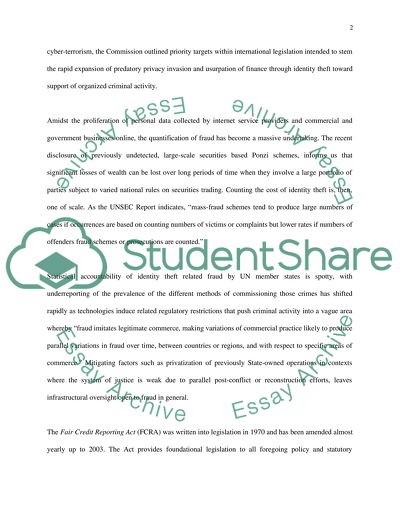Cite this document
(The History of Identity Theft: the UNESCO Mission and US Federal Essay, n.d.)
The History of Identity Theft: the UNESCO Mission and US Federal Essay. Retrieved from https://studentshare.org/politics/1520937-economic-impact-of-online-identity-theft
The History of Identity Theft: the UNESCO Mission and US Federal Essay. Retrieved from https://studentshare.org/politics/1520937-economic-impact-of-online-identity-theft
(The History of Identity Theft: The UNESCO Mission and US Federal Essay)
The History of Identity Theft: The UNESCO Mission and US Federal Essay. https://studentshare.org/politics/1520937-economic-impact-of-online-identity-theft.
The History of Identity Theft: The UNESCO Mission and US Federal Essay. https://studentshare.org/politics/1520937-economic-impact-of-online-identity-theft.
“The History of Identity Theft: The UNESCO Mission and US Federal Essay”, n.d. https://studentshare.org/politics/1520937-economic-impact-of-online-identity-theft.


